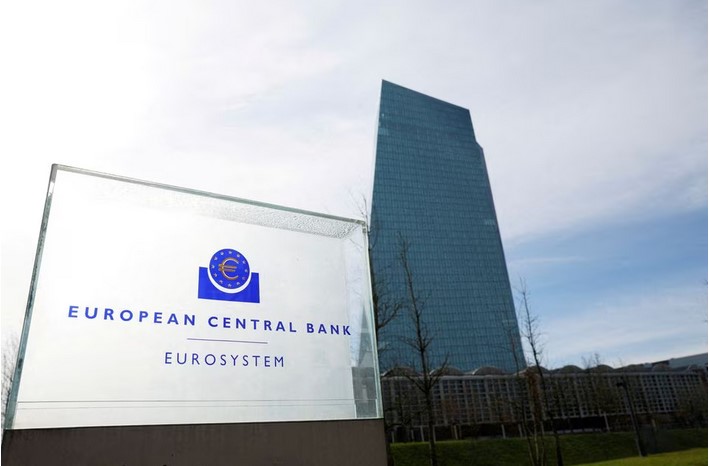In a recent turn of events, the European Central Bank (ECB) has raised concerns and criticism regarding the Italian government’s proposed tax on windfall bank profits. The ECB’s reservations stem from the belief that this tax measure fails to adequately consider the long-term prospects of financial institutions and could potentially render some of them vulnerable to economic downturns.
ECB A Surprise Blow to Italian Banks
Last month, the Italian government delivered an unexpected blow to the country’s banking sector by imposing a one-off 40% tax on profits generated from higher interest rates. This decision came after the government reprimanded banks for their perceived failure to adequately reward depositors.
The announcement of the tax sent shockwaves through the financial markets, resulting in a significant decline in bank shares. However, the Italian economy ministry quickly clarified that the impact of this new tax would be relatively minor, amounting to no more than 0.1% of a bank’s total assets.
ECB Critique on the Proposed Tax
The ECB, in a non-binding legal opinion, voiced its concerns about the proposed tax. According to the ECB, the extraordinary tax rate may not align with the long-term profitability and capital generation capacity of credit institutions.
The ECB’s statement reads, “The amount of the extraordinary tax might not be commensurate with the longer-term profitability of a credit institution and its capital generation capacity.” This criticism highlights the potential mismatch between the tax burden imposed and the financial health of banks.
Furthermore, the ECB expressed apprehension about the broader implications of the tax. It noted that credit institutions with lower solvency positions or those primarily focused on lending activities, such as smaller banks, could face challenges in absorbing the potential downside risks associated with an economic downturn.
ECB Proposals to Mitigate the Tax Impact
In response to the ECB’s concerns and the outcry from the banking sector, Italian lawmakers are expected to present proposals aimed at mitigating the impact of the tax. These proposals include allowing banks to partially deduct the tax from their overall corporate tax bills.
Additionally, there are discussions surrounding the potential exemption of smaller banks from the tax burden. Some politicians are considering revising the tax cap by linking it to risk-weighted assets (RWAs) rather than total assets. This adjustment could help alleviate the tax’s impact on the banking sector.
Uncertainty Surrounding Tax Calculations
One of the key uncertainties surrounding the tax is the calculation of “total assets.” The ECB has raised questions about how this calculation will be made and whether it might lead to banks reporting losses or reduced profits when the tax is due in mid-2024, as per the government’s scheme.
Balancing Act: Higher Interest Rates vs. Economic Challenges
The ECB’s concerns not limited to the tax itself but also extend to its potential consequences. While higher interest rates can benefit banks, they may offset by lower lending volumes, increased funding costs, and losses on bad debts if the economic situation deteriorates.
In light of these potential challenges, the ECB emphasized the need for caution to ensure that the extraordinary tax does not negatively impact the ability of individual credit institutions to maintain strong capital bases.
Conclusion
The Italian government’s decision to impose a windfall bank profit tax has sparked concerns from the European Central Bank. While the government aims to address the perceived lack of reward for depositors, the ECB is urging careful consideration of the long-term effects of the tax on the banking sector. As lawmakers deliberate on proposals to mitigate the tax’s impact, the financial industry watches closely to see how this issue unfolds.
FAQs
- What is a windfall bank profit tax? A windfall bank profit tax is a one-time tax imposed on the excess profits generated by banks, often resulting from favorable economic conditions or increased interest rates.
- Why did the Italian government impose this tax on banks? The Italian government imposed the tax as a response to what it saw as banks’ failure to adequately reward depositors. They believed that banks were benefiting from higher interest rates without passing on sufficient benefits to their customers.
- How will the tax impact smaller banks in Italy? Smaller banks in Italy may face challenges absorbing the tax burden, as they may have lower solvency positions and be more focused on lending activities. Lawmakers are considering exemptions and adjustments to alleviate their tax burden.
- What is the ECB’s role in this matter? The European Central Bank (ECB) has raised concerns about the tax, particularly regarding its potential mismatch with the long-term profitability and capital generation capacity of credit institutions. The ECB’s opinion carries significant weight in financial matters within the European Union.
- What are the potential consequences of the tax for the banking sector? The tax’s consequences could include reduced profits for banks, increased funding costs, and challenges in maintaining strong capital bases. The ECB emphasizes the need for caution to ensure the tax does not negatively impact the banking industry.

